84-year-old marathoner Chan Meng Hui has completed 99 marathons… and counting.
12-year-old speedster Ong Ee Howe ran 5km in a mere 22 minutes and 15 seconds.
52-year-old Patsy Lim ran 42km in the 2013 Standard Chartered Marathon – with a personal best timing of 4 hours 29 minutes and 32 seconds.
At last weekend’s Pocari Sweat Run, these three avid runners shared their insights on running, in a Q&A session – where participants were free to ask questions.
Dr Jason Chia – the Senior Consultant and Head of Tan Tock Seng Hospital’s Sports and Surgery Centre – moderated the session.
Here is what the three runners and Dr Chia shared with the participants.
When and why did you start running?
Chan: I started at the age of 55. I wanted to keep myself fit for the next phase of my life, so I picked up running for exercise. It helps me to stay active so that I can have a good quality of life in my later years.
Ee Howe: I started when I was seven years old. My father took me to the track one day and I ran four rounds of the stadium. I was quite slow at that time and did it in around 11 minutes then. But I wanted to go faster and faster. So I practised. Now I can do the four rounds of the stadium in six minutes.
Patsy: I started late also, at the age of 45 when I wanted to get fit. I felt breathless when I was climbing stairs. So I realised that fitness and staying in good health was very important so I took up running.
Dr Chia, how good a sport is running anyway, and what are its real benefits?
Running is a good form of aerobic activity so it changes the fitness of your heart valves. This aspect of fitness has plenty of cardiovascular benefits and reduces the risk of getting heart attacks and other heart-related problems.
At the same time, running is also extremely accessible compared to many other sports and is easy to do. So I strongly encourage people to take up running as a form of exercise.
What helps runners to prevent injuries?
Chan: I am not a doctor so the only way I can suggest is to do stretching that loosens your muscles when you run. After you run, you need to do some more stretching to cool down. So stretch before and after runs. Whenever you run, always listen to your body too. When your body says to not run, stop running and start walking and you will recover.
Ee Howe: After a run, stretch every single leg muscle otherwise you will have more aches. Cool down to get rid of the aches and stretch as much as possible.
Patsy: Stretching is very important. Before a run or any exercise, you need to stretch. Afterwards, you need to stretch too. I recommend you to attend yoga classes too, which is really good. Anyone can do yoga and it helps to keep the bones flexible – but it takes time.
Dr Chia: No matter how or what, if you have been running long enough you will get aches. So try and rest for a couple of days after a hard session. And if you have been running vigorously without giving your body a rest, injures will result.
Also, if you find sudden changes to your running style, it could mean that something is wrong and this could develop into injuries too. Always listen to your body.
What is your advice for people who want to run further and faster?
Patsy: To run fast, a runner has to go for speed and interval training, but to run far, try and do a long run like 25km and above. That would take you far. It depends on your pace though, at how long you would take to run 25km or more.
Ee Howe: To go fast, you should do interval running. That means you run at a faster pace than you are comfortable with. Also run uphill and walk downhill and that would help you to go faster.
Dr Chia: Interval training is very important if you want to improve your speed. Most of us train for long distance running by going at a sustained pace.
But in order to improve your aerobic fitness and capacity, you should run much faster than what you are comfortable with. Break the run down into smaller distances and go at a harder effort, with rest or slow jogging in between.
Chan, how do you manage to last so long and keep running at your age?
Chan: It all depends on what you want in your life. If you want to live a longer life and maintain a good quality of life at the same time, then the only way is to exercise. There is no other shorter way to achieve this, apart from exercising.
If you don’t take care of your diet and don’t exercise, you won’t be able to stay healthy. Nowadays though, I see many younger people running one marathon after another and I think that this is very encouraging.
Chan, what does your wife think of you waking up so early to run?
Chan: Well, my wife thinks I am completely mad to go down and run when everyone else is sleeping.
Other Blog Posts
Chan Meng Hui: 99 Marathons and Counting
Tips by Mok Ying Ren @ Pocari Sweat Run

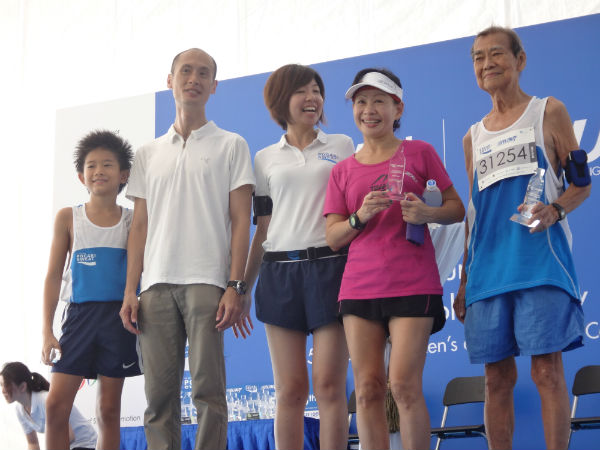
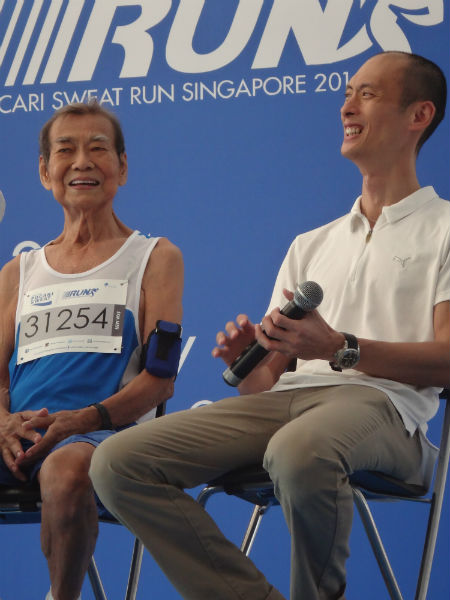
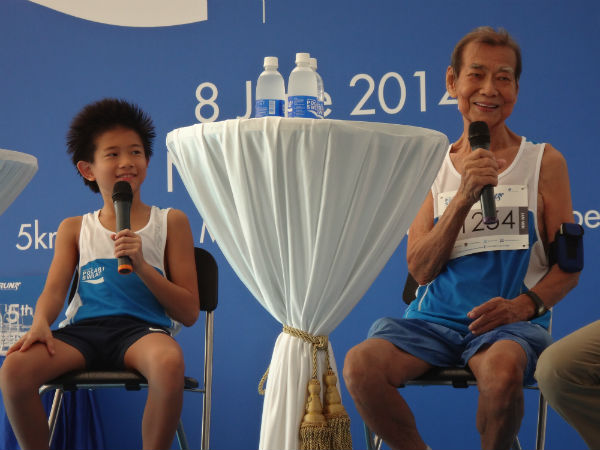
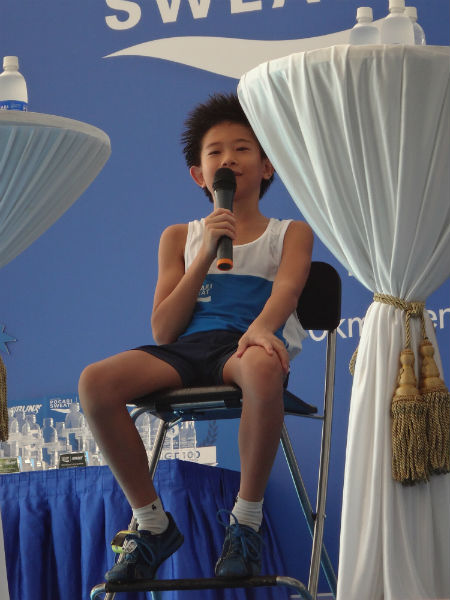
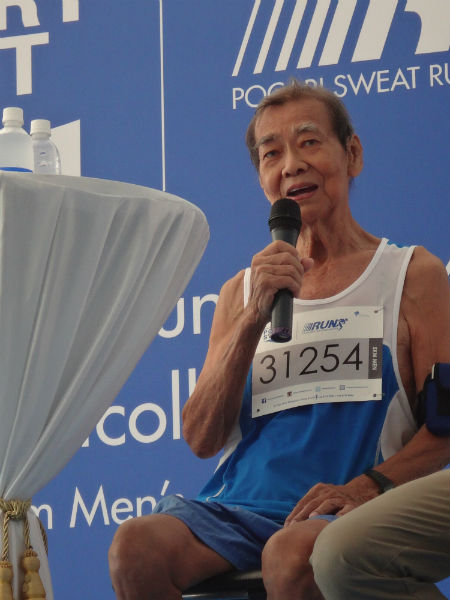
Leave a Comment